Search Images
Browse Content (p. 1566)
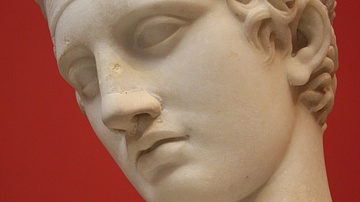
Image
Greek Athlete
A Greek athlete wearing the ribbon of victory (diadoumenos). 1st century BCE copy of a 5th century BCE original by Polykleitos, Delos. (National Archaeological Museum, Athens)
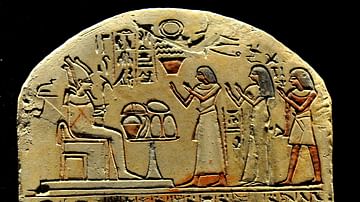
Image
Stela of Khai
Limestone stela of Khai, the follower of the king. From modern-day Egypt. New Kingdom, 18th Dynasty, circa 1400 BCE. (State Museum of Egyptian Art, Munich, Germany).
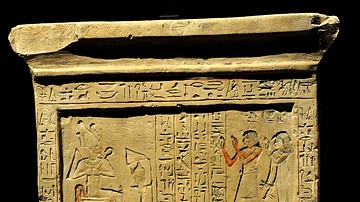
Image
Stela of Pairi
Limestone stela of Pairi. The stela was re-used again by Nefery. From modern-day Egypt. New Kingdom, 18th Dynasty, circa 1300 BCE. (State Museum of Egyptian Art, Munich, Germany).
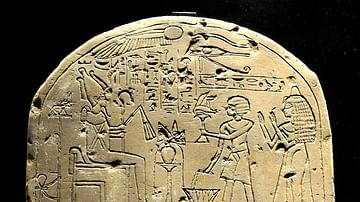
Image
Stela of Amunherhetef
Limestone stela of Amunherhetef, the fan-bearer. From modern-day Egypt. New Kingdom, 18th Dynasty, circa 1380 BCE. (State Museum of Egyptian Art, Munich, Germany).
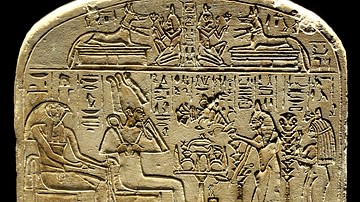
Image
Stela of Ptahmay
Limestone stela of the chief of police, Ptahmay. From modern-day Egypt. New Kingdom, 18th Dynasty, circa 1300 BCE. (State Museum of Egyptian Art, Munich, Germany).
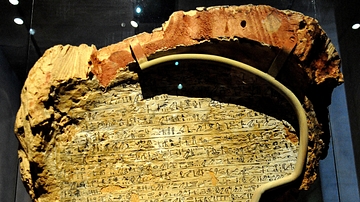
Image
Coffin of Sitdjehuti, Back View
Sitdjehuti was a sister and daughter of Egyptian pharaohs. This is the back side of the the upper part of her coffin, which was made of gold-plated sycamore wood and stucco. There are hieroglyphic inscriptions. From Western Thebes, modern-day...
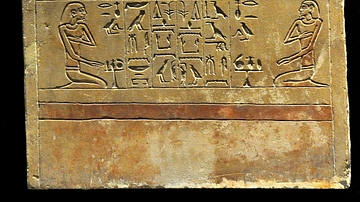
Image
Stela of Nefernay
Limestone stela of Nefernay with his nurse and family. From modern-day Egypt. Middle Kingdom, circa 12th Dynasty, circa 1800 BCE. (State Museum of Egyptian Art, Munich, Germany).

Image
Coffin of Sitdjehuti, Close-Up of Interior
Sitdjehuti was a sister and daughter of Egyptian pharaohs. This is a close-up view of the back side of the the upper part of her coffin, which was made of gold-plated sycamore wood and stucco. There are hieroglyphic inscriptions. From Western...
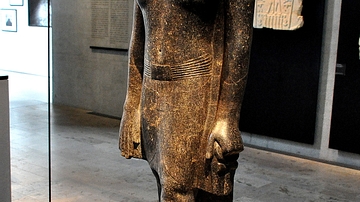
Image
Statue of Horus
Standing-striding granodiorite statue of the god Horus, from the mortuary temple of Amenophis III, Western Thebes, New Kingdom of Egypt, 18th Dynasty, c. 1360 BCE.
State Museum of Egyptian Art, Munich, Germany.
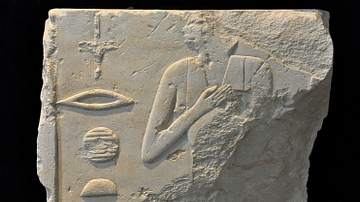
Image
False Door Stela from Maidam
A limestone fragment of a false-door stela from the tomb of pharaoh Rahotep. From Maidum (Meidum), modern-day Egypt. Old Kingdom, circa 2600 BCE. (State Museum of Egyptian Art, Munich, Germany).